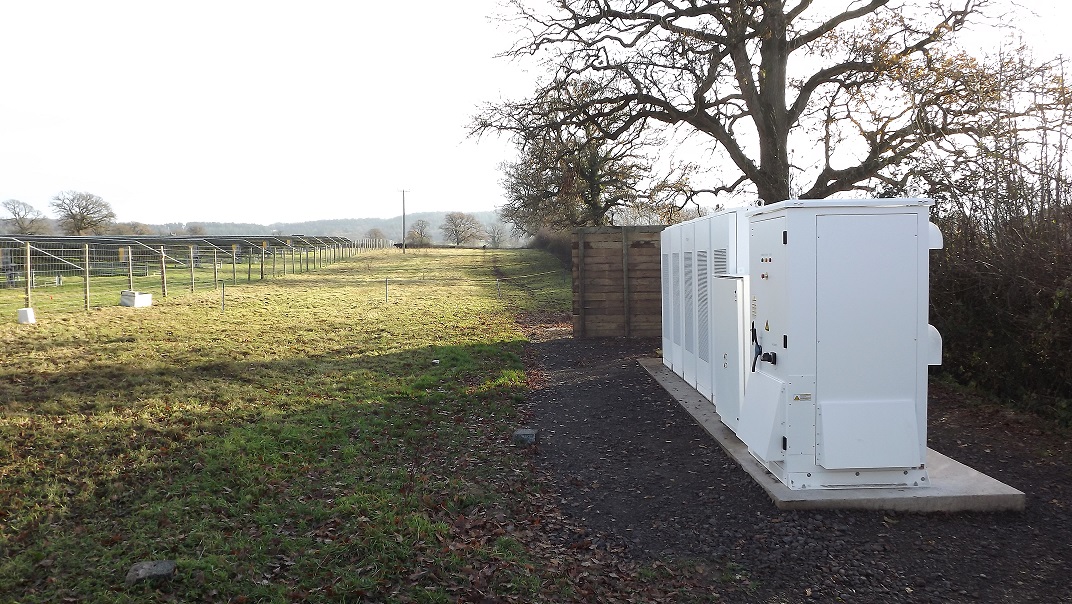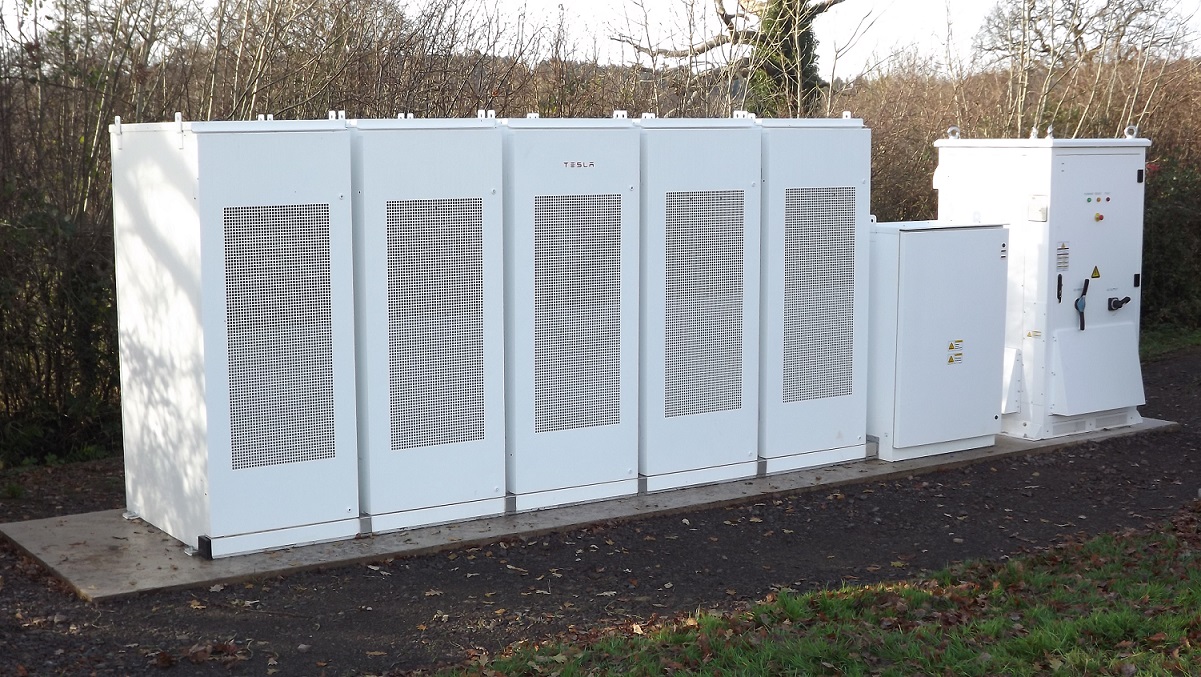
The 500kWh Tesla Powerpack battery storage system is co-located with a solar farm and will tender to offer FFR services to National Grid next month. Image: Open Energi.
Open Energi’s Dynamic Demand technology has been integrated with Europe’s first grid-scale Tesla Powerpack installation in Somerset in preparation for the site entering the firm frequency response (FFR) tendering market.
The 500kWh battery storage system, which is co-located with a 500kWp solar farm, will be able to automatically store and discharge energy in response to electricity supply and demand across the UK.
Open Energi’s Dynamic Demand technology optimises the system’s operating profile to maximise revenue opportunities throughout the day, applying designed management techniques, while limiting the degradation of the battery lifetime.
The site is able to respond to changes in the grid within the 10 second demands of the FFR tender by National Grid, and has the capability to respond within one second if the site bids into future Enhanced Frequency Response (EFR) tenders.
If successful in next month’s tender, an FFR contract with National Grid will allow the site to deliver new revenues for Camborne Energy Storage, which has a vested interest in the project. This is in addition to those taken from arbitrage whereby the Powerpack charges from the solar farm, or the grid during low pricing periods, and sells this into the market during peak demand periods.
David Hill, strategy director at Open Energi, said: “Energy storage is helping the UK transition to a smarter, cleaner energy system, but there’s more to unlocking value from it than putting a battery in a field.
“We’re using the latest machine learning techniques to manage battery performance in real-time. By understanding and managing state of charge in relation to fluctuations in solar PV generation and changes in electricity supply and demand we can maximise revenues and minimise wear and tear.”

Image: Open Energi.
The Somerset project is the first co-located energy storage project from CES, starting 2017 with around 50 MW of consented sites ready for development.
Dan Taylor, managing director at CES, said: “We have ambitious deployment targets for energy storage in the UK and this successful project is an exciting step forward for us and the industry. It demonstrates the vital role of energy storage in delivering secure, low carbon power to the UK.
“We are aiming to co-locate further energy storage with renewable generation throughout the UK and help make our electricity system fit for the future.”
Speaking to SPP about these future projects, Taylor explained that CES takes a technology-agnostic approach, meaning not all future sites are likely to feature more Tesla Powerpack systems.
